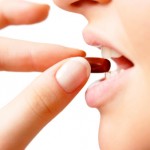The following are specific recommendations and methodologies, backed by a substantial amount of science and physiology, on ways to avoid getting ill and what to do if you get sick or your body is fighting something. Remember, your body is an incredible complex of systems, and your behaviors and choices will determine the health and vitality of those systems, especially the immune system. So if you are sick, you must ask yourself: “What type of body have I been building?”
WHAT TO DO WHEN YOU’RE SICK:
NO SUGAR…
DRINK LOTS OF WATER…
GET PLENTY OF REST…
GET EXTRA ADJUSTMENTS…
EAT SIMPLY AND NUTRITIOUSLY…
BOOST UP YOUR SUPPLEMENTS…
No Sugar:
Vitamin C and glucose are very similar in their molecular makeup. So much alike that they enter cells through the same pathway. Vitamin C fuels phagocytosis (the process that allows your body to break down and eliminate debris and toxins). The body has a higher affinity for glucose; therefore the body will let glucose in faster than Vitamin C.
If you have an abundance of glucose (sugar) in the blood, that sugar gets into the cell, prohibiting Vitamin C from being properly absorbed into the cell. So phagocytosis shuts off and you build a high propensity for infection (thereby lessening your immune response).
Drink Lots of Water:
Drink pure water over sugary drinks. Water is critical for almost ALL cellular FUNCTION. Dehydration promotes histamine production; histamine promotes mucus production and inflammation, which lead to infection. Drinking water helps the body regulate temperature, especially during a fever. The best liquid intake recommendation is to take in the equivalent of your whole body weight in fluid ounces daily (so if you weigh 200 pounds, that is 200 fluid ounces), by drinking half of that and eating the other half through fruits and vegetables.
Get Plenty of Rest:
The body is an energy system and it acts on priority. For example: When you eat a big meal, energy is diverted to the digestive system for proper extraction and absorption; likewise, when you exercise, the bulk of your energy is routed to the musculoskeletal system. Without rest, your body can not properly delegate its energy to the system that needs it the most.
Your body loves exercise, and it is good for every physiological function you have in your body. However, when you are sick or your body is fighting something off, you should lessen the intensity of your workouts so that your immune system can receive as much energy as possible.
Stay warm- 83% of a person’s energy goes toward maintaining body temperature. You compromise the immune system when the body is chilled.
Reduce mental stress- Stress changes your physiology and body chemistry; stress causes your blood sugar to go up, and your immune system to go down. Laughter – on the other hand – reduces levels of certain stress hormones while strengthening the immune response.
Get Extra Adjustments:
Subluxation suppresses immune function. Research shows that those under regular chiropractic care have lower levels of oxidative stress in their cells, (that is a very good thing) and have up to 200% BETTER IMMUNE FUNCTION THAN THOSE WHO DO NOT GET ADJUSTED. They have the strength and ability to fight off infections naturally without outside help.
Eat Simply and Nutritiously:
No added sugars. No refined foods. No simple carbs. Reduce animal protein. Do not eat lots of meats and proteins. It takes more energy to digest a complex meal (which takes energy away from the immune system) than to digest a simple light meal. No pro-inflammatory foods (dairy, some gluten foods, wheat, refined grains, sugar); they increase mucus production.
Eat plenty of whole foods (especially vegetables). Vegetables are loaded with vital nutrients your body desperately needs. When you are fighting off an infection, you have to make extra sure you are providing the anti-oxidants and vital nutrients the body needs.
Boost Up Your Supplements:
Healing is an inside-out job. Health comes from within; however so does sickness.
SUPPLEMENTS ARE SUPPLEMENTS, NOT MEAL REPLACEMENTS.
Whole-food vitamins and supplements – It only makes sense that your supplements should get their nutrients from fruits and vegetables, rather than synthetic man-made chemicals. So aim for whole food vitamins, and remember, when comparing supplementation prices, cheaper is not better…you get what you pay for.
Probiotics – About 80% of our immune system resides in our gut, so if you are drinking and eating food with chemicals, have a stressful life, or have a lot of toxins in your body, you are probably devoid of these healthy bacterial flora (which fight off infectious agents by maintaining the proper pH of the gut).
Fish oil/ Long chain fatty acids (DHAs and EPAs) – Fatty acids are beneficial for the cardiovascular system, the immune system, brain function, etc.
Vitamin C – Fuels phagocytosis
Vitamin D – Sunlight is the greatest source. If supplementing, the recommended amount is 5000 IUs/day of Vitamin D3.
Zinc – Consume zinc lozenges for a slow release. Zinc is great for upper respiratory tract infections.







